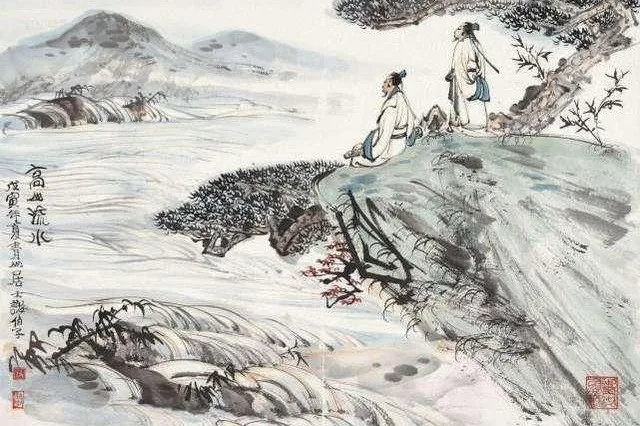By Shazia Anwer Cheema
Chinese society is the only one on earth that has the same geographical boundaries it had over 5000 years ago. The collective wisdom of Chinese culture is based on a set of philosophies and traditions and Chinese folklore represents and explains the connotations and denotations of these mores and customs.
Foreign researchers have yet to compile comprehensive documents on what Chinese folklore represents most but one factor is already documented and testified that the notion of “friendship” with someone or other rules the Chinese collective wisdom. Chinese believe that a real friend is one who walks in when the rest of the world walks out and friends show their love in times of trouble, not in happiness. This factor can be seen definitely in the China-Pakistan friendship. China always helps Pakistan when Pakistan is deserted and left alone and the Chinese always show their firm relationship in times of trouble instead of time of happiness. Instead of citing several examples to confirm the above-mentioned, it is easy to understand this dynamic of Pak-China friendship when anybody looks at the Karakorum High Way (KKH) and China Pakistan Economic Corridor (CPEC) and pains linked with this project. Both examples represent blood and sweat-soaked strong bonds between the two countries.
After the gruesome and heart-wrenching incident of the Besham attack on Chinese nationals, those who always try to harm Pakistan tried to establish a narrative that since the Besham incident is not the first one where Chinese lost their lives in Pakistan due to terror attacks and it is a prime example of security lapse, therefore, China is changing the route of Built and Road Initiative (BRI) and will invest more in central Asian republics and Afghanistan while putting CPEC on the back burner and will directly enter Afghanistan from Tajikistan and will drop CPEC as BRI’s main route. This narrative also includes that China will stop investing in Pakistan rather will invest in Afghanistan because China feels that Pakistan is an undependable partner and it has failed several times to protect Chinese citizens and Chinese interests and Pakistan’s closeness to the United States could be a factor to compromise Chinese’s interests. The narrative propagated by elements that always try to harm Pak-China relations further claims that China will soon wrap major projects including ML1.
The entire narrative propagated by anti-China-China friendship elements caved in when China announced its interest in investing in the Tarbela Dam project just after the Besham incident and China categorically said that its relations with Pakistan are beyond what a normal mind could think and China would remain in Pakistan and would continue to work not only CPEC rather several future projects. This news was a mourning event for those who wanted to harm China-Pakistan relations and for those also who did not understand the dynamics of Chinese collective wisdom.
As already mentioned, Chinese traditions are ruled by friendship, and giving a heavy cost to friendship is also a major lesson of Chinese culture. For those who don’t under the crescendos of Chinese friendship, they should read one of the most popular stories of Chinese culture that represents bonds of friendship and that is the story of two friends–Guan Zhong and Bao Shuya and their story explains the concept of “junzi”— the moral paradigm in Chinese philosophy.
Guan and Bao were politicians during the Spring and Autumn Period (770-476 BC). They were born in Yingshang and became friends with each other in their childhood. Guan’s family was relatively poorer than Bao’s.
Bao could always comprehend Guan’s financial conditions and difficulties and never accused him of his failures and shortcomings because Guan sometimes could not make the right decisions at the right time because of his immediate financial needs. Before entering politics, they were engaged in business and took part in joint ventures together and Guan always took a greater share of the profits than he deserved because Bao never complained because he knew poor financial conditions of Guan. During local wartimes, Guan fled battlefields on multiple occasions but Bao never complained and linked his habit with Guan’s need to take care of his elderly mother rather than accusing him of cowardice.

The following part of the story is copied from a Chinese folktale book to explain the interesting details of the lives of Bao and Guan:
“The two friends later entered politics as tutors to two princes of Qi. Guan was appointed tutor to Prince Jiu. Bao, meanwhile, became tutor to Jiu’s brother, Prince Xiaobai. Prince Xiaobai became Duke Huan of Qi, the state’s new ruler. Subsequently, the new ruler won the war against the State of Lu which sheltered Prince Jiu and tried to enforce his claim. Qi pressured Lu to kill the prince and send Guan back. With Guan’s repatriation, the two friends were reunited. But the new ruler, Duke Huan of Qi, still bore a grudge against Guan, since Guan had tried to assassinate him. Meanwhile, the ruler planned to elevate Bao, his tutor and guardian, to the post of chancellor. Bao, however, defended his Guan’s loyalty to his former master and lauded his talent, persuading the duke to exonerate Guan and elevate him to the position of chancellor instead of Bao. He also persuaded Guan to shift his loyalty to the new ruler. Duke Huan of Qi took Bao’s suggestion into consideration. Years later, based on Duke Huan’s governance and Guan’s reforms and deft diplomacy, Qi became the most powerful state of that time”.

The story of Bao and Guan not only represents true friendship, mutual trust, and understanding that Pakistan and China own and one can understand Pakistan is Guan of the story who may be weaker than Bao but having exceptional capabilities would always be a source of respect for his Bao whenever he is trusted as Bao always trusted Guan.
People who are novices to Chinese history should remember this story before understanding Chinese contemporary society and the dynamics of its international relations.
